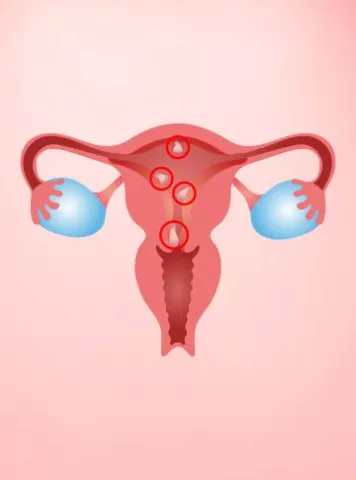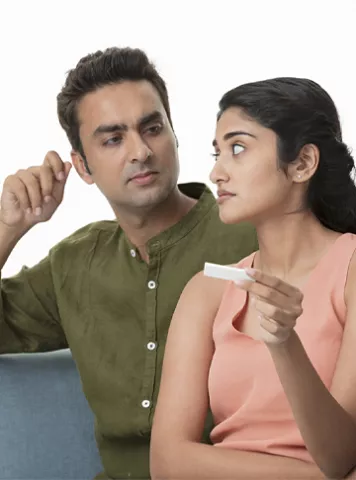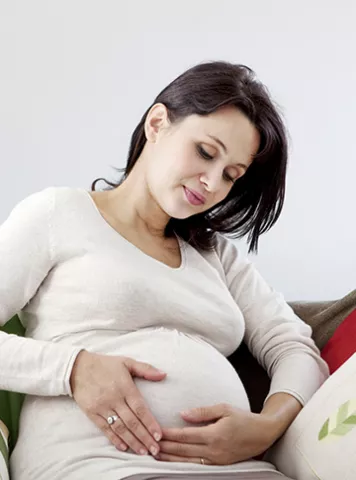Endometriosis
>In spite of increasing concern regarding development of cancer in patients of endometriosis , one should be aware of the fact that malignant transformation of this disease is not a common occurrence and is seen only in 1.8% of the cases which equals to less than 2 women in 100. But if at all malignancy occurs then 75% of the malignancies associated are ovarian in origin and rarely in rectum , sigmoid colon and rectovaginal septum. Data from cohort and case control studies shows that ovarian carcinomas arising out of this disease are mostly endometrioid and clear cell type on histology. As this disease is a chronic inflammatory condition associated with invasion of tissues , most of the time when it is atypical in nature , it serves as a precursor lesion leading to malignant transformation.
INTRODUCTION
Endometriosis is mainly found in 10% women belonging to the reproductive age group. It is defined as presence of endometrial like tissue (glands and/ or stroma) outside the uterus such as in ovaries, peritoneal surfaces, rectovaginal septum and rarely can be found in pericardium, pleura, lung and even brain. Women suffering from this disease can have infertility (inablility to conceive), dysmenorrhoea , dyspareunia to chronic pelvic pain and even there can be no symptoms at all. All endometriotic lesions are associated with pelvic pain which can be mild to severe which is generally due to peritoneal inflammation, deep infiltration with tissue damage , formation of adhesion , collection of shedded menstrual blood in endometriotic implants leading to painful traction with the normal movement of tissues.
>
ETIOLOGY
It is an estrogen dependent disease. There are many theories regarding how this disease occurs and first of them is transplantation theory which says that it is due to the trans-tubal regurgitation during menstruation of the shedded endometrium and blood to ovaries , uterosacral ligaments , posterior uterus and posterior broad ligaments.
Second theory is coelomic metaplasia which says that ovarian surface coelomic epithelium can undergo metaplastic differentiation process leading to endometriosis.
Last theory is induction theory which propose that presence of some internal biochemical factor can lead to undifferentiated peritoneal cells to develop into endometrial tissue. It has been seen that risk of this disease is seven times greater if first degree relative is affected.
DIAGNOSIS
Generally it is not detected during clinical examinations. Trans-vaginal ultrasonography can detect endometrioma accurately but cannot rule out peritoneal or deep endometriosis.MRI can also diagnose deep seated lesions and endometriomas. Laparoscopy is used as a definitive diagnostic tool for identifying the disease by direct visualization of peritoneal lesions.
DEVELOPMENT OF CANCER FROM ENDOMETRIOSIS
This disease is associated with cancer but the chances of it developing into a malignancy is quite low as 1.8%. This disease has high chances of progression into malignancy if it is atypical in nature. Normally on histopathology of an endometriotic implant we can see endometrial type of stroma or endometrial epithelium with glands having cystic cavity or there is evidence of chronic hemorrhage with hemosiderin deposits whereas ATYPICAL endometriosis there is presence of cellular atypia or hyperplasia in the endometriotic deposits which is characteristic of a pre cancerous lesion as it is also associated with high degree of inflammation. Such lesions are usually associated with somatic mutations in TP53, KRAS, PTEN, PIK3CA and ARID1A gene(tumuor suppressor gene) and loss of mismatch repair genes. ARID1A gene undergo mutation in many cases leading to loss of protein expression (BAF250a) on immunohistochemistry. ARID1A gene mutation is present in 30%- 50% of clear cell carcinoma (CCC) and endometrioid associated ovarian carcinoma (EnOC). There is also loss of heterozygosity (LOH) in endometriotic lesions and endometrioid ovarian carcinomas. Galectins which are in a family of B- galactoside binding protein are also present in endometriotic implants and they play a very important role in normal cellular functions and apoptosis. Despite these associations chances of developing cancer from endometriosis are low. As we have already discussed that atypical lesion are mostly associated with carcinomas so woman being diagnosed with atypical endometriotic implants and are under high risk of developing carcinomas can be offered unilateral salpingo-oopherectomy if they are having surgery for endometrioma and are approaching menopause as fallopian tubes are the main conduit for regurgitation during menstruation. It has been well documented that continuous use of oral contraceptive pills for 5 years leads to 20%-30% reduction in endometrioid and clear cell carcinomas. As it has been emphasized earlier that risk of developing carcinomas from endometriosis is very less , approach to its treatment can be selected on case to case basis.
>
Articles
2023


World AIDS Vaccine Day 2023: Can HIV & AIDS affect fertility or your infant’s health?
World AIDS Vaccine Day is observed every year on the 18th of May to create awa...
2023


Male Infertility Infertility Tips
Hyperspermia: Causes, Symptoms, Diagnosis & Treatment
What is Hyperspermia? Hyperspermia is a condition where an individual produ...


Guide to infertility treatments Infertility Tips
पीआईडी: पेल्विक इनफ्लैमेटरी डिजीज और निःसंतानता
पीआईडी - पेल्विक इनफ्लैमेटरी �...
2022


Infertility Tips Uterine Fibroids
Endometrial Polyps (Uterine Polyps)
What are Endometrial Polyps (Uterine Polyps)? Endometrial polyps, often ref...
2022


Female Infertility Infertility Tips
Why do You Need Fertility Treatment
As we all know infertility rate is constantly rising in our society day by day...
2022


Cesarean Section Vs Natural Birth
Surrogacy centers in Delhi and Infertility centers in Pune state that there ar...
2022


ನಿಮಗೆ ಹುಟ್ಟಲಿರುವ ಮಗುವನ್ನು ಅರ್ಥಮಾಡಿಕೊಳ್ಳುವುದು: ಗರ್ಭದಲ್ಲಿ ಮಗು ಹೇಗೆ ಬೆಳೆಯುತ್ತದೆ!
ವೀರ್ಯವು ಮೊಟ್ಟೆಯನ್ನು ಭೇಟಿಮಾಡ�...
2022


Diet Chart for Pregnant Women: The Right Food for Moms-To-Be
Pregnancy Food Chart 1. The daily diet must include the right amount of pro...
2022


Can i become pregnant while my tubes are tied?
Pregnancy is one of the most important phases in women’s life and is conside...
Pregnancy Calculator Tools for Confident and Stress-Free Pregnancy Planning
Get quick understanding of your fertility cycle and accordingly make a schedule to track it















